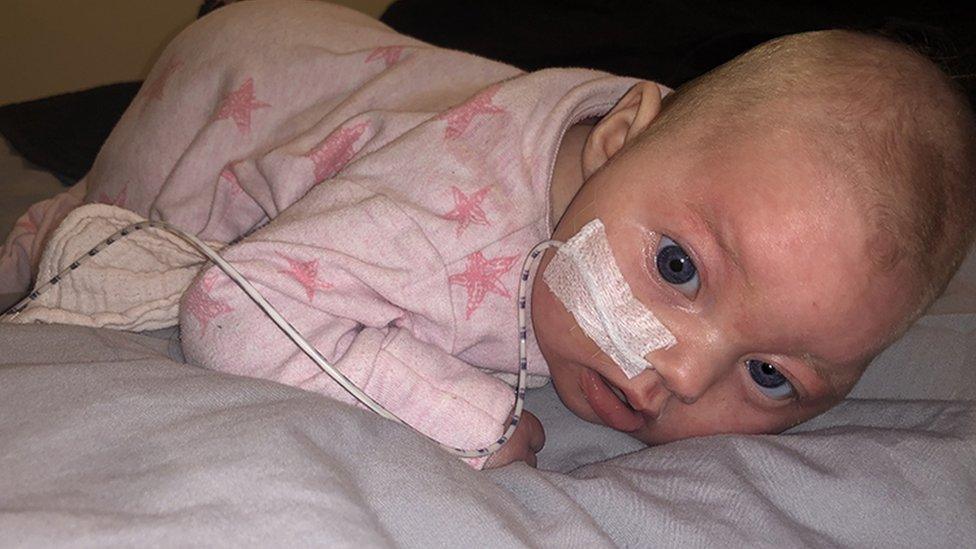Hospitals to test mums-to-be for risky group-B strep
- Published

Daisey-May was born with GBS
Screening for a life-threatening bacterial infection of babies is to be offered in a trial with 80 hospitals in England, Wales and Scotland.
About 150,000 pregnant women - one in five - carry group-B streptococcus. And if it is undiagnosed, there is a chance they could pass it to their baby.
Experts worry routine testing would see antibiotics given to many more women.
The trial will compare two tests with the current approach of testing only "high risk" pregnant women.
Each year in the UK there are between 400 to 500 babies born with GBS.
Most will fully recover with treatment but GBS can lead to pneumonia, meningitis and a dangerous blood infection called sepsis.
GBS can be especially dangerous to babies who are born prematurely.
Daisey-May's story
Daisey-May Moore was born in 2018 with GBS that developed into blood poisoning and meningitis.
Her mother, Bethany Foss, had never heard of GBS, even though Daisey-May was her third child. She had not been tested for the infection.
Bethany, who is from Exeter, says: "It was the worst time of our lives.
"We were in total shock and disbelief as to how our baby could have been born so normal and perfect, then in the space of 24 hours be so near to death.
"The whole experience has been highly traumatic.
"Nobody should have to have discussions about their new baby's life when the infection they're suffering from could so easily have been prevented."
Daisey-May is now being looked after by her parents at home but she has been left with severe brain damage.
"We don't know yet how she will be affected in the future and what she will and won't be able to do," Bethany says.
In 2017, independent experts said there was not enough proof a national screening programme would benefit mothers and babies.
The new study will measure the effectiveness of two tests:
One involves sending the lab a sample taken 35-37 weeks into pregnancy
The other gives an immediate result at the bedside and could be done when the woman is in labour
Researcher Prof Jane Daniels, from Nottingham University, said: "We want to answer the question for the NHS - should you test pregnant women for GBS or not, and if you're going to test, is it better to do a culture test at 35 to 37 weeks pregnancy or a bedside test?
"Hopefully the trial will answer these questions.
"We believe that, if testing is proved effective, this would mean that the right women get the right antibiotics."
Jane Plumb, from the charity Group B Strep Support, said: "The results of this important trial will drive improvements in UK policy and lead to fewer babies and their families suffering the trauma that group-B strep infection can bring."
- Published13 September 2017
- Published5 March 2017